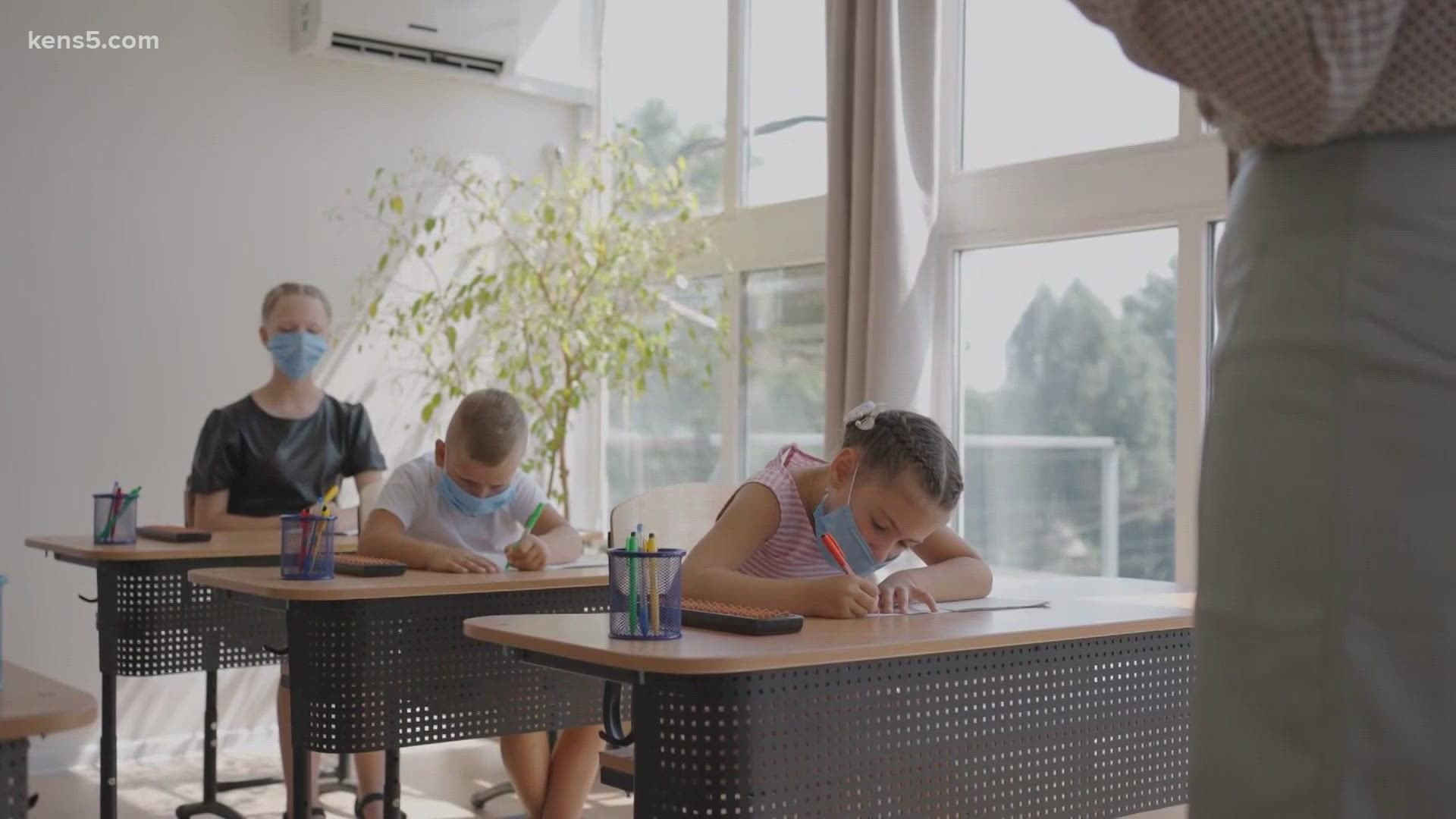SAN ANTONIO — Most children have been back on campus for well over a week or two now, and the transition back into the classroom can be a tough one for many.
Going back to school after a normal summer is hard enough on students. But after more than a year out because of the pandemic, August 2021 brought a completely different story.
"Kids may be confused about what they really need to do and what's not mandatory and so forth. So that transition may be difficult," said psychiatrist Dr. Harry Croft, of The Croft Group.
The Centers for Disease Control and Prevention says educators can help by providing virtual connections with other parents and teachers. They can facilitate virtual tours of the classroom, consider in-person meetings in outdoors settings to discuss issues, provide frequent communication with parents and stick to a daily structure, including short goodbyes when parents drop kids off at school.
"In general, the longer the goodbye, the longer the anxiety exist and the higher it becomes," Croft added.
Parents can help their children by connecting with other families who can share their experiences, talking with teachers about the best way to start the day right, staying calm and making sure the child feels as safe as possible. And, don't forget to find the time to take care of yourself, especially when returning to the office.
"Now, having to go into the workplace may cause a great deal of anxiety for parents because it's the first time, perhaps, they've been in closer contact even if they are distancing at work," Croft said.
Most importantly, listen to your kids.
"We adults have a way of wanting to teach the kids without listening to what their concerns really are. And sometimes we're surprised that their concerns are not what our concerns might be."
Also, parents should monitor their child closely. If their anxiety is severe or persistent, talk to your family doctor as soon as possible.
For more information on family health call 210-358-3045. You can also find the rest of our Wear The Gown stories at wearthegown.com.

